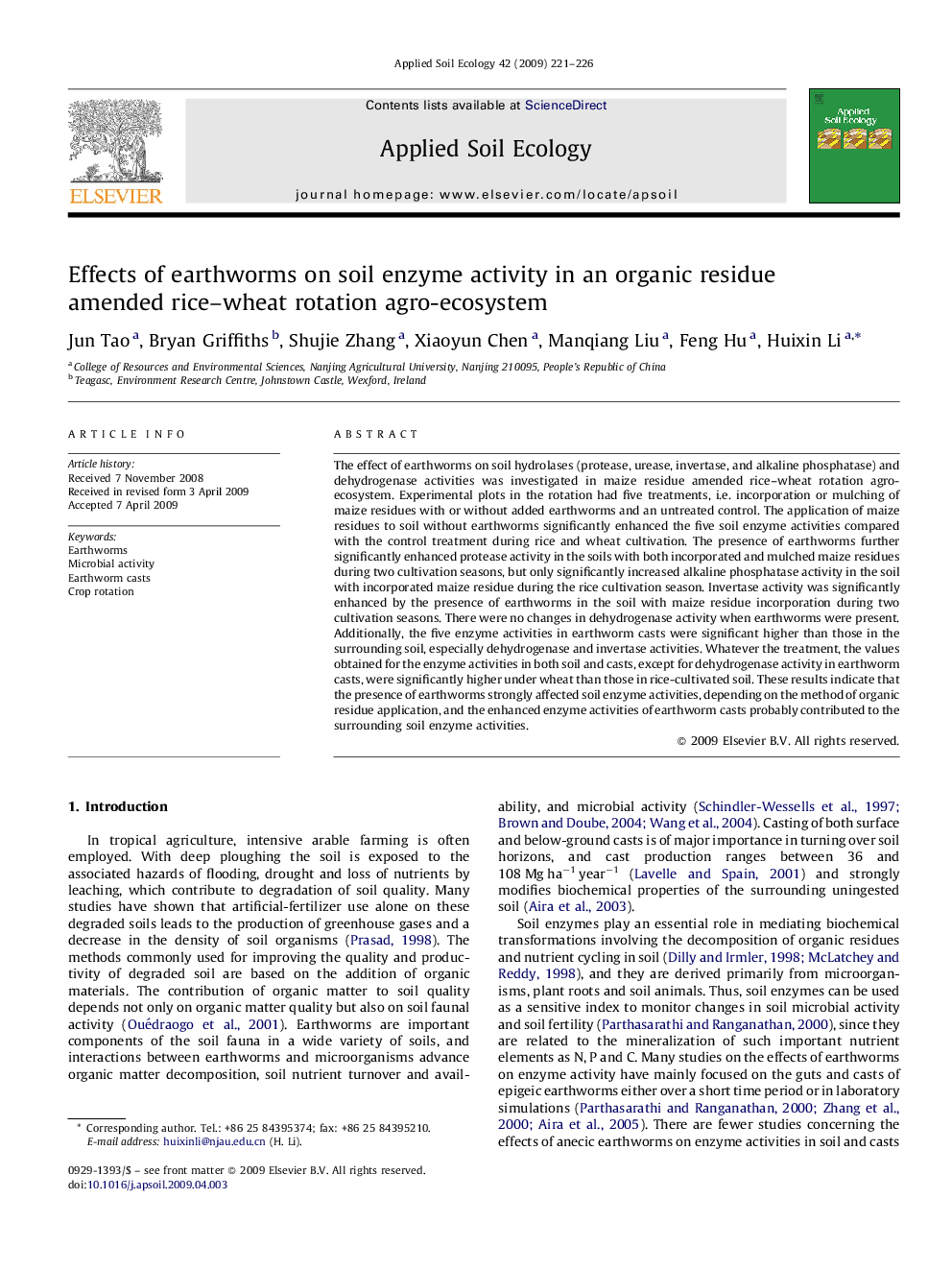| Article ID | Journal | Published Year | Pages | File Type |
|---|---|---|---|---|
| 4382869 | Applied Soil Ecology | 2009 | 6 Pages |
The effect of earthworms on soil hydrolases (protease, urease, invertase, and alkaline phosphatase) and dehydrogenase activities was investigated in maize residue amended rice–wheat rotation agro-ecosystem. Experimental plots in the rotation had five treatments, i.e. incorporation or mulching of maize residues with or without added earthworms and an untreated control. The application of maize residues to soil without earthworms significantly enhanced the five soil enzyme activities compared with the control treatment during rice and wheat cultivation. The presence of earthworms further significantly enhanced protease activity in the soils with both incorporated and mulched maize residues during two cultivation seasons, but only significantly increased alkaline phosphatase activity in the soil with incorporated maize residue during the rice cultivation season. Invertase activity was significantly enhanced by the presence of earthworms in the soil with maize residue incorporation during two cultivation seasons. There were no changes in dehydrogenase activity when earthworms were present. Additionally, the five enzyme activities in earthworm casts were significant higher than those in the surrounding soil, especially dehydrogenase and invertase activities. Whatever the treatment, the values obtained for the enzyme activities in both soil and casts, except for dehydrogenase activity in earthworm casts, were significantly higher under wheat than those in rice-cultivated soil. These results indicate that the presence of earthworms strongly affected soil enzyme activities, depending on the method of organic residue application, and the enhanced enzyme activities of earthworm casts probably contributed to the surrounding soil enzyme activities.
